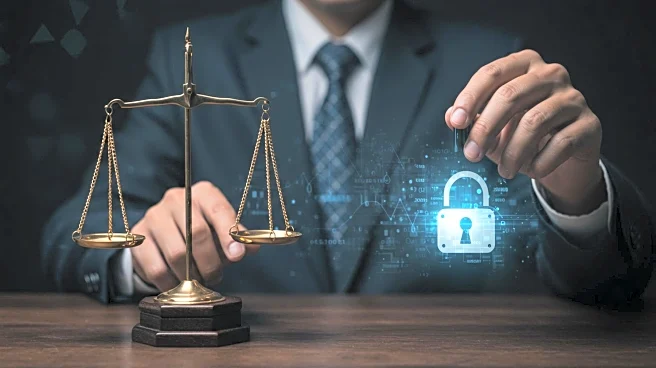What's Happening?
The U.S. Department of Justice, under President Trump's administration, has requested Illinois to provide its complete voter registration list, including sensitive personal information such as birth dates, driver's license numbers, and partial Social Security numbers. This demand, set with a deadline of September 1, is part of a broader federal effort to assert control over state-run elections, focusing on combating voter fraud. Illinois election officials are currently deliberating on whether to comply with this request. The demand has raised concerns among civil rights groups, with the American Civil Liberties Union of Illinois criticizing the move as an attempt to suppress voter rights. The Justice Department has not clarified the purpose of collecting this data or how it will be protected, leading to further scrutiny and debate.
Why It's Important?
This development is significant as it highlights the ongoing tension between federal and state authorities over election management and voter data privacy. The Justice Department's request could set a precedent for federal intervention in state election processes, potentially impacting voter privacy and state autonomy. Critics argue that such actions could lead to voter suppression, particularly in states with a history of expanding voter access. The outcome of this situation could influence future federal-state relations regarding election oversight and voter data handling, affecting millions of voters and the integrity of the electoral process.
What's Next?
Illinois election officials are expected to respond to the Justice Department's demand by September 2. The state is currently reviewing the legal justifications for the request and considering the implications of complying with federal demands. The Justice Department's insistence on a quick response suggests potential legal battles if Illinois refuses to comply. This situation may prompt other states to reassess their voter data policies and federal compliance strategies, potentially leading to broader legal and political challenges.
Beyond the Headlines
The request for voter data raises ethical and legal questions about privacy and the use of personal information by federal authorities. The potential misuse of such data for political purposes could undermine public trust in the electoral system. Additionally, the involvement of high-profile figures in the Justice Department, known for their partisan stances, adds a layer of political complexity to the issue. This case could influence future discussions on the balance between national security, voter fraud prevention, and individual privacy rights.









